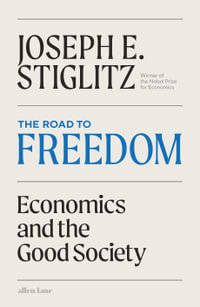In 1980, single mother families were five times more likely than two-parent families to be poor. Forty years later, single-mother families are still five times more likely to be poor. How can this be given the vast increases in education and employment achieved by American women over this period? In Thanks for Nothing, Nicholas H. Wolfinger and Matthew McKeever explore the contradictions that lie at the heart of single motherhood. Drawing on forty years of data from two large national surveys, they find that the mystery of single mothers'' economic stagnation can be explained by changes in the kind of women most likely to become single mothers. In 1980, most single mothers were divorced women; forty years later, the majority are mothers who gave birth out of wedlock. On paper, divorced women look a lot like their married contemporaries, but with one income instead of two. Never-married mothers are a completely different population--they have less education, work less, and receive lower economic returns on their educational credentials when they do work. They''re also far more likely to have grown up in underprivileged families. Ultimately, Wolfinger and McKeever find that some single mothers are doing better even as others have fallen through the cracks. Providing an in-depth look into the economics of single motherhood, Thanks for Nothing offers the most detailed statistical portrait of single mothers to date and, importantly, provides concrete suggestions for how policymakers should respond to persisting inequalities among mothers.
Industry Reviews
"A must-read for anyone concerned about the crisis of child poverty in America, whatever their views about 'family values' and the interpersonal benefits (or not) of getting and staying married." -- Stephanie Coontz, Author of The Way We Never Were: American Families and the Nostalgia Trap
"This book is a tour de force for understanding the economic disadvantage of single mothers over the past forty years. I have no doubt it will become a classic in the study of single motherhood and will be a compelling read for anyone concerned about families, economics, and public policy!" -- Marcy Carlson, Sewell-Bascom Professor of Sociology and Associate Dean of the Graduate School, University of Wisconsin, Madison
"How have the economic circumstances of single mothers changed over the past four decades? In this elegantly written and lucid monograph, Wolfinger and McKeever carefully trace single mothers' economic wellbeing over a forty-year time span. The analyses are thoughtful, and discussion of results and policy options is refreshingly balanced. This book will be of substantial interest to those concerned with the past and present economic precarity of single mothers
and their children." -- Pamela J. Smock, Professor of Sociology, University of Michigan
"Even though women have made dramatic gains in education and work in the last half century, one group of women has not seen their financial fortunes much improve: single mothers. In Thanks for Nothing, Wolfinger and McKeever explain how declines in divorce and rising rates of never-married motherhood combine to help explain the continuing economic stagnation of single mothers. This masterful and measured book paints an invaluable and well-written
financial picture of single motherhood in America today." -- Brad Wilcox, Professor of Sociology and Director of the National Marriage Project, University of Virginia
"In a world where fact and opinion frequently overlap and even social science research may feel somewhat agenda-driven, Thanks for Nothing is a straightforward, valuable tool. With clear prose and deep, consistently high-quality analysis, Wolfinger and McKeever sort fact from fiction when it comes to family structure and what it portends. Anyone interested in the factors that help families thrive or hinder them will find useful data that's easy to
understand within these pages." -- Lois M. Collins, Deseret News
























